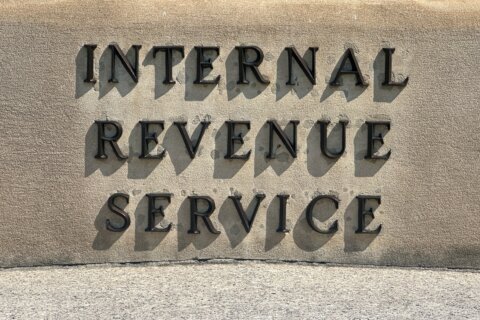Borrowing costs are at record highs and for consumers carrying debt, that adds to the burden, especially when they’re carrying more than ever.
A Northwestern Mutual survey found that 32% of D.C.-area consumers said they are carrying close to their highest level of debt ever right now, with credit cards and car loans being the largest source of personal debt, at 24% and 13% respectively. Those nonmortgage debts are followed by education loans and medical debt.
The average nonmortgage personal debt in D.C. is $24,800, which is higher than the national average of $21,800.
When asked how long they believe it will take to get out from under their nonmortgage debt, 26% of D.C. consumers surveyed by Northwestern Mutual said as long as 10 years, 8% said they didn’t know and another 8% resigned to the fact they believe they will carry debt for the rest of their lives.
Financial planners tell clients struggling with debt that the hardest part about managing it is first facing up to it and not ignoring the actual scope of it for fear of undue stress.
“There is something to be said for just kind of putting your head under the pillow, but I think the anxiety associated with that is very real and palpable,” said Kurt Rupprecht, co-founder of D.C.-based K Street Financial Group. “I think you are much better off being informed, because I think from there you can embrace a mindset of progress planning versus perfection planning.”
Getting out of debt is also a lot harder if you’re trying to figure out how to do it on your own, he said.
“Having that third party that you can talk to about it is really useful,” Rupprecht said. “Whether it is an actual financial professional or if it’s a friend, but just actually laying everything out and having a conversation and ideally having it be in an environment where someone doesn’t feel judged.”
Household incomes in the D.C. region are higher than many parts of the country, presumably meaning consumers are better equipped to manage their debt, but that is not necessarily so.
The Northwestern Mutual survey also found that D.C. residents who carry personal debt said 29% of their monthly income goes toward paying it off, which is only slightly less than the national average of 30%.
The survey also found a healthy flip-side to consumer debt in the D.C. region as 34% of those surveyed said they are currently carrying close to or at their lowest level of debt ever.








